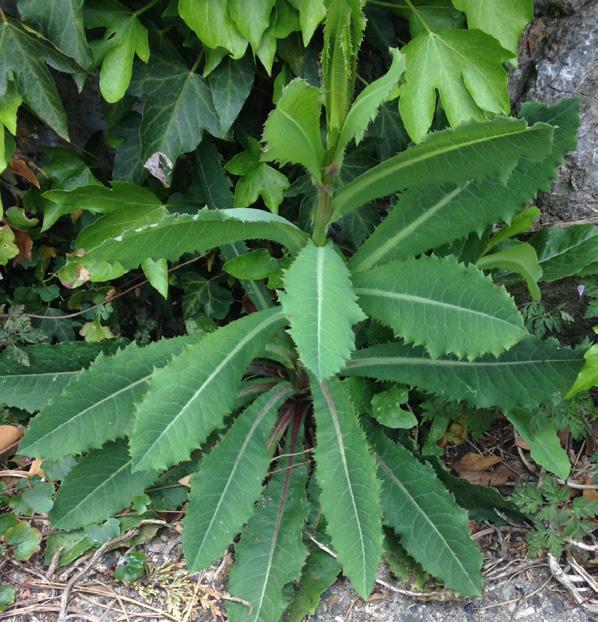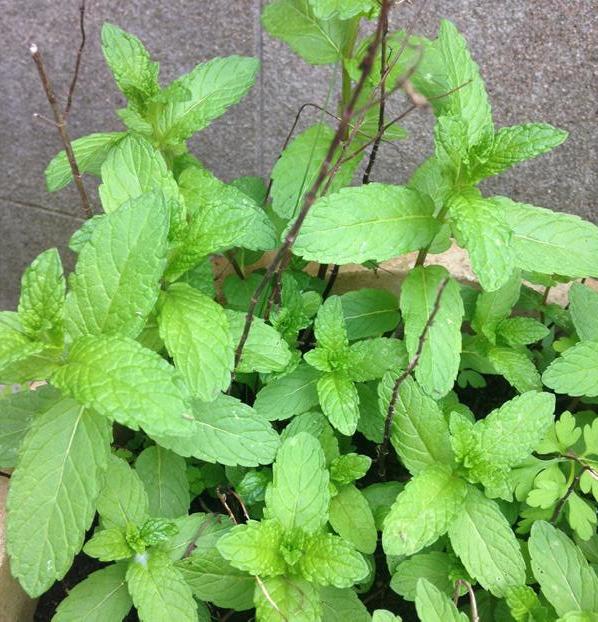
7 minute read
OUR HERB WALK
south westerlies... THE presses may not be rolling this issue, but Scott’s still confident a better future awaits us all. Anything is possible
THIS time last year (in 2019’s June/July issue) I was celebrating that climate change had finally been put at the forefront of lives thanks in great part to the actions of Extinction Rebellion. I went on to say we now need to be positive about a low carbon future. Little did I know a more immediate greener transitioned future would be born out of necessity to survive 2020 as a society. A year on and we’re experiencing a ‘Pandemic’ but not the kind always portrayed in Hollywood disaster movies! Society has not collapsed into chaos, looting, burning, and lawlessness have not been a part of this apocalypse. Instead we have in the main been kind, as we deal with the situation, we’ve remained on our sofas to save the world. It’s brought out the best in us, as we mobilise volunteers to help our shielded, and applaud the essential workers in our society we realise now are the most crucial to all our lives. We are entering a post-apocalyptic world and it’s nothing like Mad Max, instead of oil being scarce it’s almost worthless. As Rob Hopkins points out in his April blog ‘When a resilient future calls by to see if you want to come out to play’ (tinyurl. com/ya389kew) geese, goats and other wildlife are wandering though town and city centres. There has been an explosion in people growing food, we have had over 3 million people order food direct from a local farm for the first time. Online searches for ‘how to cook’ have increased hugely. Artists, actors, musicians, orchestras and performers are all going online, exploring the practicalities of life without flying and touring huge shows around the world, some performing for the first time to their neighbours in their streets. Businesses who felt they had no choice other than to hire premium office space and fly their teams to meetings are realising that actually meeting online and working at home can work perfectly well. Airlines have been grounded, factories closed, lockdowns have driven down air pollution around the globe. Satellite images from the European Space Agency and NASA show a dramatic reduction in the amount of harmful greenhouse gas emissions in the atmosphere. CO2 output levels have dropped by 17% to levels last seen in 2006, and urban air quality has improved dramatically. We have had months of blue skies and breathing clean air and around the world things are changing. In the UK surface transport emissions - including vehicles and industry - declined by 43%, the same as the drop from industry and power generation combined. That green new transition Extinction
Advertisement
Scott Rebellion called for last year, is gaining political traction. The European Commission have announced a ‘Just Transition Fund’ and increased five-fold its proposed EU fund to wean carbon-intensive regions off fossil fuels, with fresh cash from a new recovery fund to help Europe’s ailing economies rebound after the new coronavirus pandemic. Predominantly the lowcarbon sectors of their economy will benefit, with hundreds of billions ploughed into promoting electric vehicle sales, renewable energy projects and into making new, green technologies economically viable. China announced a transition to cleaner modes of growth, starting with finally excluding clean coal projects from their revised list of projects eligible for green bonds. They are developing cleaner forms of energy for winter heating, and offering green finance for steel mills to pay for mandatory upgrades to their emissions control technology. China’s central bank has added shared bicycle and scooter services to the list of eligible projects, and will also allow green financing to support China’s carbon and green power certificate trading sectors. The Norwegian government propose spending 3.6 billion Norwegian crowns (£300 million) on investments to make its economy greener promoting Hydrogen power solutions, battery technology, ocean windfarms and efforts to cut pollution from the shipping industry. At the time writing we have not seen the UK government announce their new transition plans other than pledge £250m for improvements in cycling and walking infrastructure. I hope they do announce plans even more ambitious than those above, and we don’t just return to the same old normal. I am just a bit disappointed we have not all ended up wearing giant shoulderpads, feathers, chains and leathers (no one’s stopping me I guess) whilst Tina Turner became our Warrior Queen. I’m sure we can continue to be kind and keep safe, daily life has unfortunately become a little more dangerous. The possibilities are now there for society to move to a more sustainable lifestyle, and now more than ever a new transition will be crucial to our wellbeing. We know pollution is one of the factors behind increased vulnerability to COVID-19 and must ensure air quality does not deteriorate, it will determine our immediate future now more than ever.

Mint – Mentha species The mint family is large, with a multitude of hybrids and cultivars. Everyone is familiar with this most common of herbs, spearmint in toothpaste, mint teas, mint sauce, peppermint sweets and much more. Easy to grow in the garden, mints are best grown in pots or within a root enclosure in the ground to avoid unchecked spreading, unless that is what you want. Many pleasant tasting mints also grow in the wild, such as water mint and horsemint. Most have similar properties medicinally. Mint is well known for its digestive benefits. Most easily taken as a tea, from fresh or dried leaves, mint relieves trapped wind and colic, from the lower digestive tract. It does have some anti nausea effects, particularly for those who can’t tolerate the heat of ginger, but generally it is more effective for easing lower digestive discomfort than upper. The menthol content of mint can help ease sinus congestion, and is often included in a hayfever or rhinitis remedy or tea. A lesser known use of mint is on the skin for it’s anti-itch properties. Insect bites, or any itchy skin condition can be cooled and inflammation reduced by bathing the area in mint tea, or using a couple of drops of peppermint essential oil in a cream or carrier oil to apply to the skin. This does not necessarily cure the cause of the itch, but it relieves the symptoms very well. Wild lettuce – Lactuca virosa A common wayside weed with small dandelion style flowers in clusters, which needs careful identification having similarities with many other weeds. The leaves are used in modern herbal medicine for their calming and relaxing effects, and for helping combat insomnia. The effects are initially to reduce chaotic thoughts, and then to calm and promote healthy sleep. Think of it as filing your thoughts away in their proper place, like a pile of papers waiting to be put away, then leaving clear calm space, a tidy desk, to relax without those thoughts intruding. This plant is one of the wild versions of our cultivated lettuce, but tastes much more bitter, with a milky sap similar to dandelion. In Culpeper’s time they used the whole plant, including the fleshy roots, to create a syrup by boiling the chopped root, straining and adding sugar to the resulting liquid. The plant can be made into a vinegar or alcohol extract tincture by chopping the plant material and putting into a jar, covering with either cider vinegar or wine vinegar, or a spirit such as vodka and capping tightly. This should be shaken daily to maintain moisture throughout, not allowing any dry floating bits to form which could grow moulds. After 2 – 6 weeks, strain off and keep the liquid in a bottle or jar in a dark cupboard. Refrigeration is not necessary and it will keep for at least a year. Use up to 3 teaspoons per 24 hours diluted in a cup of water for helping to calm the mind, or promote restful sleep. Can be safely used daily for several months. As always, it is recommended you consult a professional for any symptoms which persist and don’t try to self diagnose. Those taking existing orthodox medication need to check for interactions before using herbs. Harvest plants mindfully and respectfully, never taking more than you need and always leaving some behind to continue growing. Plants in the wild should be harvested with the land owners permission. Stay well. Dawn l Find out more about herbalism and Dawn at www.torbay-herbalist. co.uk Mint TORBAY herbalist Dawn Ireland of Green Wyse explains a little about medicinal uses of common seeds or herbs, taking us on a virtual Reconnect herb walk. Wild lettuce










